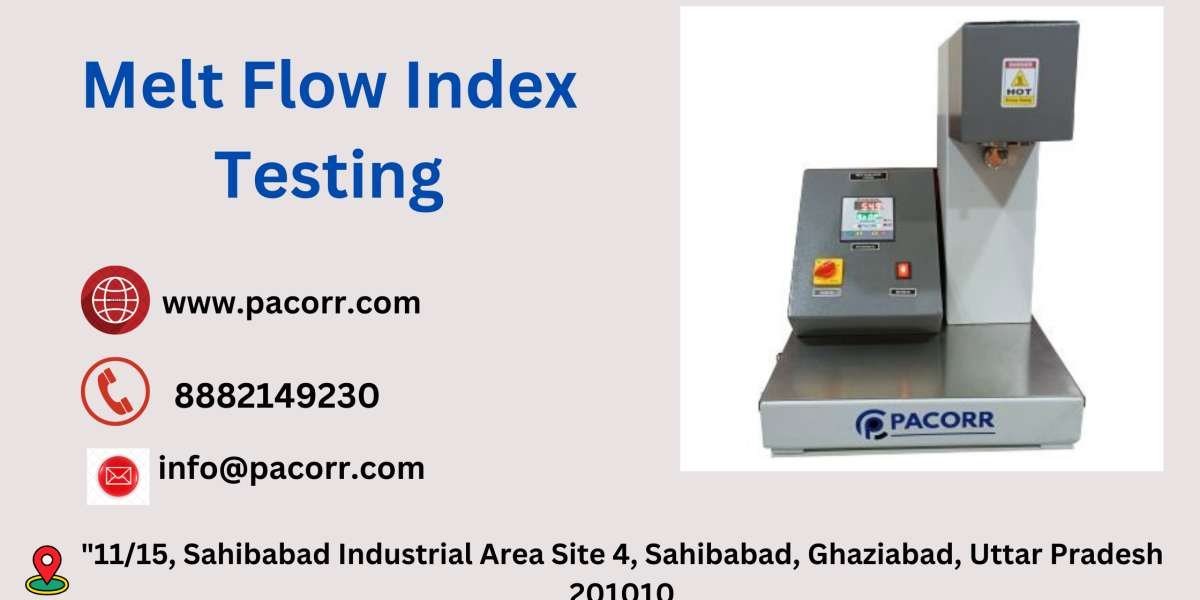Melt Flow Index Tester: Understanding Its Importance in Quality Control
Introduction
In the ever-evolving landscape of manufacturing, maintaining the highest quality standards is paramount. One critical parameter in quality control, especially in the plastics industry, is the Melt Flow Index (MFI). The Melt Flow Index Tester is a specialized instrument designed to measure the flow rate of molten plastic. This article delves into the significance of the Melt Flow Index Tester, its applications, and how it aids manufacturers in ensuring the quality and consistency of their products.
What is a Melt Flow Index Tester?
A Melt Flow Index Testing is a laboratory instrument used to measure the rate of extrusion of a thermoplastic material through a die of specified dimensions under prescribed conditions of temperature and pressure. The result, expressed in grams per 10 minutes (g/10 min), is known as the Melt Flow Teste (MFI) or Melt Flow Rate (MFR). This measurement is crucial for understanding the flow properties of plastic materials, which in turn affects their processing and end-use performance.
Why is the Melt Flow Index Important?
The Melt Flow Index provides valuable insights into the viscosity and molecular weight of the polymer. High MFI values indicate low viscosity and low molecular weight, making the material easier to process but potentially less robust. Conversely, low MFI values suggest high viscosity and high molecular weight, indicating a stronger but more challenging material to process. By knowing the MFI, manufacturers can make informed decisions about material selection, processing conditions, and product design.
Applications of the Melt Flow Index Tester
- Quality Control: The primary application of the Melt Flow Index Tester is in quality control. By regularly testing the MFI of raw materials and finished products, manufacturers can ensure consistency and compliance with industry standards.
- Material Selection: Engineers and designers use MFI values to select appropriate materials for specific applications. For instance, a material with a high MFI may be suitable for injection molding, while one with a low MFI might be better for extrusion processes.
- Process Optimization: Understanding the MFI helps in optimizing processing parameters such as temperature, pressure, and screw speed in extrusion and injection molding processes. This optimization can lead to improved product quality and reduced production costs.
- Research and Development: In RD labs, the Melt Flow Index Tester aids in the development of new materials and formulations. By evaluating the MFI of different polymer blends, researchers can fine-tune properties to meet specific performance criteria.
Key Features of the Melt Flow Index Tester
Modern Melt Flow Index Testers come equipped with several advanced features to enhance accuracy and ease of use:
- Digital Display: Provides precise readings and allows for easy monitoring of test parameters.
- Automated Cutting Mechanism: Ensures consistent sample cutting for accurate MFI determination.
- Temperature Control: Maintains stable temperatures during testing, essential for reproducibility.
- Data Logging: Allows for the recording and analysis of test results, facilitating quality control documentation and traceability.
How to Use a Melt Flow Index Tester
Using a Melt Flow Index Test involves several steps:
- Preparation: Preheat the tester to the required temperature and condition the polymer sample according to standardized methods (e.g., ASTM D1238 or ISO 1133).
- Loading: Place the pre-weighed polymer sample into the barrel of the tester.
- Testing: Apply the specified load to the sample and extrude it through the die for a set period.
- Measurement: Collect the extrudate and weigh it to calculate the MFI.
Conclusion
The Melt Flow Index Tester is an indispensable tool in the plastics industry, providing critical data that helps manufacturers maintain high-quality standards, optimize processing conditions, and develop new materials. By understanding and utilizing the MFI, companies can enhance their production efficiency, ensure product consistency, and remain competitive in the market.








